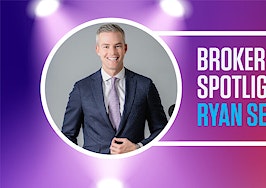 This April, one of Inman’s most popular recurring theme months returns: Back to Basics. All month, real estate professionals from across the country share what’s working for them, how they’ve evolved their systems and tools, and where they’re investing personally and professionally to drive growth in 2022. It’s always smart to go Back to Basics with Inman.
This April, one of Inman’s most popular recurring theme months returns: Back to Basics. All month, real estate professionals from across the country share what’s working for them, how they’ve evolved their systems and tools, and where they’re investing personally and professionally to drive growth in 2022. It’s always smart to go Back to Basics with Inman.
Looking for more advice? Check out Inman’s New Agent Essentials.
It is such a cliché at this point, but only because it’s true – everything feels different now. We’ve written and talked a lot about “The New Normal” over the last couple of years, with the idea that many of the changes we saw during the pandemic were turning into long-term cultural and behavioral shifts.
Now that many markets have gone more or less back to normal, we see that this is true. Many folks have gotten used to the convenience of delivery. Many have chosen to prioritize health and well-being in their daily lives. Many have changed their expectations for their professional life and the way they expect to be treated in the workplace.
So, when we started talking about Back to Basics month, we realized that we couldn’t do so without revisiting the concept. What is essential now? What is truly fundamental in our New Normal?
We’ve made it the Pulse question of the week and reached out to experts. We’ve looked at the latest research as well, all to determine what matters most now. Here’s what we discovered.
If you’ve been standing still, you’ve now gone backwards

Stacey Cohen
According to branding expert Stacey Cohen, President and CEO of Co-Communications, with so many people feeling stuck over the last two years, moving forward is essential.
“If you keep doing the same thing, you will not get the same result; you will be stuck in reverse,” said Cohen. “The pandemic created dramatic shifts in consumer behavior that span all areas of life, from how we work, shop, travel, and make home purchase and sales decisions.”
In terms of your brand, you need to revisit it and see what updates need to occur. In terms of operations, marketing and so much more, you need to turn a fresh eye toward your business and see what needs a reboot.
“The new competitive advantage is change and innovation,” said Cohen. “It’s more important than ever to step out of your comfort zone and adapt communication strategies to meet new demands.”
Relationship-building is foundational

Dana Miller
According to eXp Realty of California team leader Dana Miller, today “client relationships are paramount.” While all of the standard marketing tasks and strategies matter, “at the end of the day, people want to do business with people that they trust and they like,” she said.
Miller believes that longevity in real estate comes from forging and forming relationships then sustaining them. This helps to insulate the agent from the inconsistency of market movements.
“For me, this is the basis of my extremely successful career,” said Miller. “I have done all of the [marketing strategies] but without the relationship-building aspect, those are short-term burns.” For Miller, fostering long-term relationships continues to pay dividends long after other marketing activities are forgotten.
Compass broker Kimberly Jay said, “It’s time to get back to the basics of human relationships.” With the impact of social media, it’s easy to get caught up in superficial images and forget the importance of the personal.

Kimberly Jay
“Pick up the phone, call a past client, a potential seller, or an old friend. Ask, ‘How are you doing?’ It’s that simple,” said Jay. “You’d be surprised, just showing interest in another person may lead to a repeat client, new listings or a referral.”
So-called soft skills matter more than ever
If we’ve learned anything from the last couple of years, many of the hard-charging, hustle-heavy practices we used to venerate no longer seem as important. Soft skills like empathy, active listening and flexibility are more important than ever, especially when working with agents and clients experiencing anxiety, health crises and loss.
While they can be more difficult to master, it’s worth it to learn to lead in a way that’s more mindful, inclusive and collaborative. It’s especially important when working with younger clients and agents since they often have different expectations and priorities.
Moving your business into the future means understanding the needs and requirements of these generational cohorts so that you can communicate and work with them effectively.
Re-learn the art of the pre-pandemic open house

Ellen Sykes
Coldwell Banker Warburg’s Ellen Sykes says that one of the biggest changes in NYC was to open houses. Due to a combination of low inventory and precautions around handouts and mailers in the early days of COVID, much of the process for holding homes open went by the wayside. Now it’s time to get back to some basics.
Open houses
According to Sykes, a return to the traditional drop-in open house, rather than appointment-only, significantly increases the visibility of a listing. “Instead of one or two people making an appointment, you get as many as nine drop-ins during the same time,” she said. Sykes recommends leaving masks and sanitizer on a table outside the door and insisting on mask-wearing inside the home.
Show sheets
“Show sheets have a floor plan, pictures of the apartment, salient facts about the property, and all of the contact information for the agent,” said Sykes. She sees show sheets coming back after disappearing for much of the pandemic.
“When a show sheet goes home with prospective buyers, they have something to peruse at their leisure reminding them of what they liked and disliked about the home, which they can talk through with friends and family,” she said.
Direct mailings
Postcards and letters advertising a new listing or just sold “virtually came to a standstill,” said Sykes. This took a toll on brand visibility for agents. In addition, in her New York City market, “Sellers are reassured when the agent knows the building, particularly for a co-op where the application process can get tricky.”
Without direct mailers, conveying this expertise became more difficult, so she is glad to see them returning. Although mailers may not get used right away, “they just lie around in the apartment. When it comes time for sellers to consider selling, they have the agent contact for someone who has already sold in the building right there in front of them,” said Sykes.
Technical literacy is not optional
Understanding the tech in your office is no longer a matter of choice. It’s vital for providing optimal service to your clients. Offering exceptional tech stacks is no longer optional for brokers and team leaders. It’s necessary for recruiting the best real estate agents and giving them the tools they need to achieve great things.
Throughout COVID, the ones who were ready to hit the ground running with video, virtual tours, and optimal tech capabilities were putting points on the board. Staying up with the latest technology isn’t just good business – it’s completely necessary in the event of another major disruption.
If you pride yourself on your Luddite ways, you’re not only holding yourself back – you’re actively making it difficult for people to work with you. More and more, you may find that they won’t take the trouble to decipher your poorly organized offers or hand-scrawled notes. They’ll choose to work with those who are tech-savvy and able to provide a more streamlined approach to the transaction process.
Think outside of your local market
Many of the changes wrought by the pandemic have resulted in individuals and families rethinking where they live, either because of family needs or because of professional flexibility. We’ve seen wave after wave of relocations – and savvy agents can get in on the action.
Whether you’re developing your professional network and referral partnerships or working with a relocation company, focusing exclusively on your market means you’re leaving money on the table. Drill down into the data and find out where newcomers to your area are arriving from and where those leaving are going. Follow those trendlines and develop relationships that you can leverage to find opportunities to connect.
Inclusive organizations just do better
If you want to maximize your reach in the community, you need to make sure your team or brokerage looks like your market. Creating a more inclusive organization allows you to leverage more spheres of influence and create relationships with new clients and referral sources throughout your market.
The business case for diversity is well-documented and continues to grow stronger and it begins with taking a look at the way you do business. From recruitment to internal communication, it’s vital for you to develop a business environment where everyone can achieve their professional goals.
Now more than ever … it’s time to work together

Nicholas Acosta
“The one thing that agents and students need today is true broker and instructor support,” said Nicholas Acosta, broker-owner and instructor with Downtown Expert Realty. “In our post-Covid world, [getting] back to basics is critical for successful agents and real estate students.”
Whether it’s mentoring a future leader in the industry or developing your network of professional contacts, this is no time to go it alone. If you’re new to the industry, seek out the guidance of those who’ve been in the trenches for years. If you’re an industry veteran, make sure you’re reaching out to those who are new and help them become competent, valued colleagues.
It’s not about feel-good niceties, it’s about collaborative environments where everyone can excel. It’s about cooperation that leads to co-listing and referral opportunities. It’s about making the industry as a whole more competent and more respected so that we all rise together.
Going back to basics is about more than signage and contracts — though they’re a big part of it. In addition, though, it’s about a new perspective and a new insight provided by the time we’ve spent apart and the massive disruptions we’ve experienced. It’s about a more whole-hearted understanding of what it means to relate to each other and to do business today.
Christy Murdock is a Realtor, freelance writer, coach and consultant and the owner of Writing Real Estate. She is also the creator of the online course Crafting the Property Description: The Step-by-Step Formula for Reluctant Real Estate Writers. Follow Writing Real Estate on Twitter, Instagram and YouTube.













